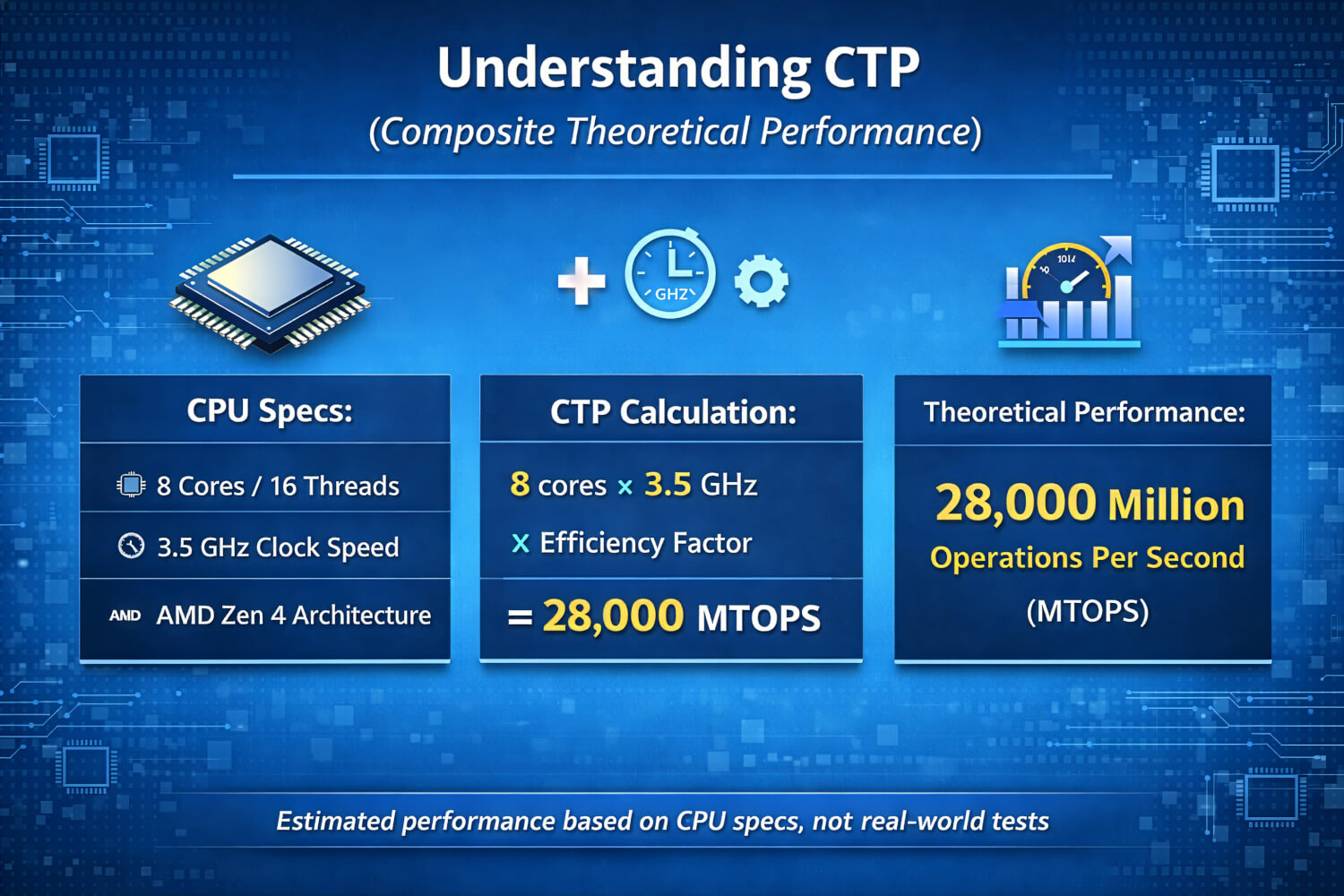CTP
Stands for "Composite Theoretical Performance."
CTP is a calculated value used to estimate the overall performance of a computer processor. Rather than measuring real-world speed, CTP uses theoretical calculations based on a CPU's design to estimate maximum processing power.
CTP is mainly used for benchmarking, which compares the performance of different CPUs in a standardized way. These calculations consider factors such as the number of cores, threads, clock speed, and the efficiency of the processor's architecture. The result is a single performance value that represents the theoretical amount of work a processor can do.
Because CTP is theoretical (by definition), a processor with a lower clock speed can outperform a faster-clocked CPU if it has more cores or a more efficient architecture. This helps explain why two processors with similar gigahertz ratings can deliver different real-world performance.
NOTE: CTP can also stand for Computer-to-Plate, a printing technology used in professional publishing. In a Computer-to-Plate system, digital page layouts are sent directly from a computer to printing plates, eliminating the need for film. This process improves speed and accuracy, and reduces production costs.

 Test Your Knowledge
Test Your Knowledge